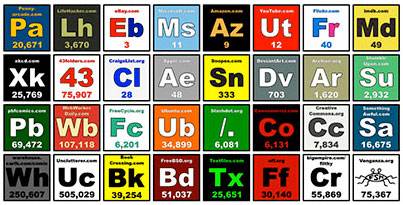 Mmmm... a ver. Aproximadamente desde 2002 que en Chile comenzó firme el desarrollo de los blogs. Pioneros destacables: el emprendedor Leo Prieto, el senador Fernando Flores, el publicista Roberto Arancibia y el periodista Christian Leal.
Mmmm... a ver. Aproximadamente desde 2002 que en Chile comenzó firme el desarrollo de los blogs. Pioneros destacables: el emprendedor Leo Prieto, el senador Fernando Flores, el publicista Roberto Arancibia y el periodista Christian Leal.Sin embargo me permito -humildemente- afirmar que esta semana que pasó, realmente, nació el fenómeno 2.0 en Chile. Lo hizo con este post y a causa de este "acuerdo".
El 23 de julio de 2007 marcará un antes y un después en la historia tecnológica de este país. Es cierto, muchos podrán decir que los bloggers criollos se habían organizado antes... pero estoy seguro que nunca se había conseguido un efecto de esta magnitud e incluso con alcance internacional.
Además recientemente se están generando loables iniciativas de web 2.0 como Santiagorama, Livingsantiago o Blog Cocha Joven.
Chile (al fin) comienza a dar muestras de inserción en esta nueva forma de vida. Ahora, queda mucho por hacer y en eso me uno a las críticas que se han hecho a las políticas públicas de la autoridad tecnológica y a movimientos como el de Neutralidad SI.
Más...
Además recientemente se están generando loables iniciativas de web 2.0 como Santiagorama, Livingsantiago o Blog Cocha Joven.
Chile (al fin) comienza a dar muestras de inserción en esta nueva forma de vida. Ahora, queda mucho por hacer y en eso me uno a las críticas que se han hecho a las políticas públicas de la autoridad tecnológica y a movimientos como el de Neutralidad SI.
Más...
- Las reacciones tras el 23/7: El Francotirador, El 5º poder.
- Medios Digitales.info: Red de bloggers pone en jaque acuerdo entre Microsoft y el Gobierno de Chile.
- Huasonic: Chile no se vende.
- El proyecto de ley de Neutralidad (.doc).






